«Why do you ask all these questions? I did nothing wrong.»
«It’s what he does. (WHISPERING) Or used to do. I’m helping him, you know, he’s back at it for the moment. It’s going well.»
«What is it that you do?»
«What is it that I do? Um… When a crime has been committed, I can, by application of order and method and the slow extinguishing of my own soul, find without fail or doubt, whodunit.»
«Like in your books, your silly detective from Finland, he’s making lists. Do you base yourself on her writing?»
Olga Seminoff, Ariadne Oliver, and Hercule Poirot in «A Haunting in Venice»
Kenneth Branagh is an impressive actor, his performance of «Henry V» is probably one of the best I have ever seen. With his role of Hercule Poirot his performance is … more mixed. «Murder on the Orient Express» was visually impressive, but the story was tainted by the introduction of «the message», «Death on the Nile» was even worse (more tainted). Yeah, racism is bad, we know. Making it a point in a story that is about something else is incredibly distracting. Just not the time and place. I want to watch a murder mystery, not being lectured on something I know.
The third Agatha Christie movie, «A Haunting in Venice», does not have these dissonant tones. One short remark that is a bit sexist (and a bit rich when coming from Ariadne Oliver), but otherwise it’s the story that is the focus. Okay, the concentration camp element was not in the original story, but at least it fits in 1947. And «A Haunting in Venice» has almost nothing in common with «Halloween Party». It’s an entirely new story, and regarding the story … yeah, it works.
It also has some nice quotations.
«Hmm. Hercule Poirot really has gone silent. Walled himself up into retirement. Cakes for cases.»
«I am much satisfied.»
«No. This is happiness, not satisfaction. A writer knows the difference. Even picked Venice to hide in. A gorgeous relic, slowly sinking into the sea, just like your mind without a challenge. (CHUCKLES) Don’t underestimate me for a clever turn of phrase. I am the world’s number one mystery writer.»
Ariadne Oliver and Hercule Poirot in «A Haunting in Venice»
«Is it not too frightening for the children?»
«Hmm. Scary stories make life less scary.»
Hercule Poirot and Ariadne Oliver in «A Haunting in Venice»
«If there was a God, he would not break his rule for her.»
Hercule Poirot in «A Haunting in Venice»
«Do you really think the help had motive?»
«The help always have motive, first having to endure to be called ‹the help.›»
Ariadne Oliver and Hercule Poirot in «A Haunting in Venice»
Not giving away any spoilers, but in this movie, the visual appeal of the previous movies meets a well-told, undistracted whodunit story.
Although when it comes to Poirot, I still prefer the Finley version, or the Suchet versions. Kenneth Branagh’s Poirot is too likable. As if he had concerns playing someone that is inherently … distasteful. I mean, Poirot is someone about whom you can say: «I think he is the sharpest mind I know, and I am glad he’s on the case, but I do not want to be his friend, nor spend any more time with him than necessary.» Sherlock Holmes is aloof, but Poirot is a peacock with OCD. You don’t really believe that Branagh’s Poirot has actually alienated everyone. Both Finely and Suchet are … more openly egoistical, more vain. Branagh is still … too nice.
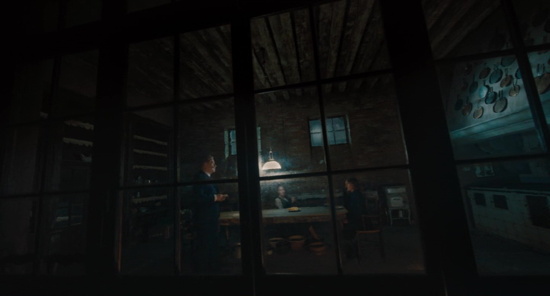
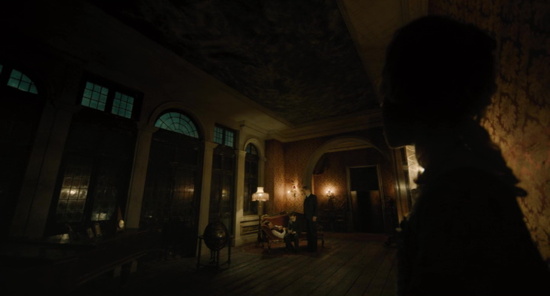
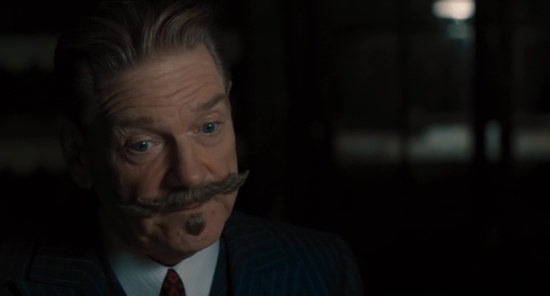
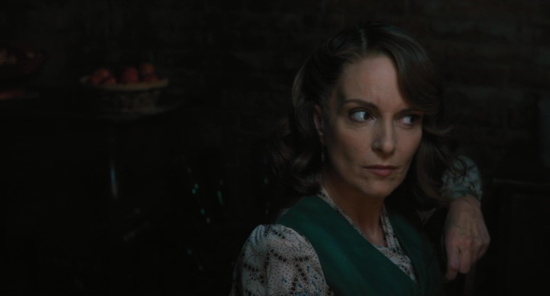
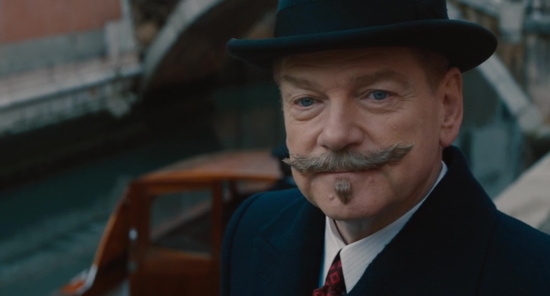
But still, positively surprised and highly recommended.
Oh, hey, and there’s of course a trailer online: